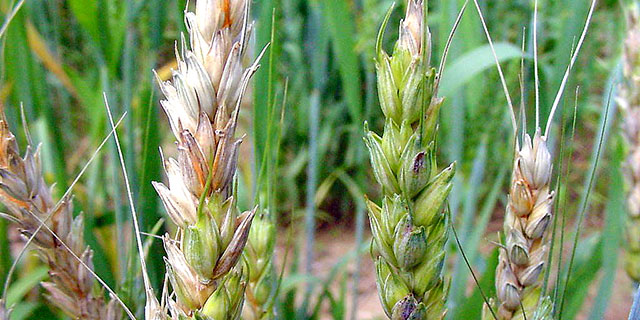Trump’s plan to hit Mexico, Canada with tariffs draws concern
Published 4:00 pm Tuesday, November 26, 2024

- President-elect Donald Trump
President-elect Donald Trump’s plan to impose heavy tariffs on imports from top agricultural trade partners — China, Mexico and Canada — is drawing concerns about the impacts it would have on farmers and shoppers at grocery stores.
“We’re very concerned because farmers are always targets of retaliation, even when they’re not involved in the issues that start the trade wars. Farmers are innocent bystanders,” said Jim Bair, president and CEO of USApple.
Mexico and Canada take 53% of the U.S. apple industry’s foreign shipments and that was worth $551 million the past year, Bair said.
Bair added that financial assistance to farmers — provided during trade wars in the first Trump administration — may be difficult due to new attention on the federal budget deficit.
According to the USDA Economic Research Service, China is the top foreign destination for U.S. ag shipments, with $33.7 billion in fiscal 2023. That was followed by Mexico at $28.2 billion and Canada at $27.9 billion.
Building trade relationships
Jeff Stone, executive director and CEO of the Oregon Association of Nurseries, said he’ll urge Trump to think twice before enacting tariffs.
“Trade wars seem like bad business to me,” Stone said.
He added that tariffs increase the costs of goods to agriculture, and in the nursery business, that includes pesticides, pots and other products.
“For us, our largest trading partner is Canada for a foreign country. We’re the third largest nursery state in the country and we really depend on products being able to go to market to build those relationships. … Trade relationships are based on actual relationships over a long period of time,” Stone said.
Tariff plan details
Trump announced Nov. 25 that when he takes office in January, he’ll immediately impose 25% tariffs on imports from Mexico and Canada and an additional 10% tariff on goods from China.
The moves are in response to illegal immigration and crime and drugs crossing the border, Trump said on social media.
The tariffs on Mexico and Canada would jeopardize a trade agreement negotiated and adopted during Trump’s first term in office.
Mexico’s response to the development was feisty, with the country’s president indicating retaliatory tariffs on American goods.
Congressman blasts plan
Rep. David Scott (D-GA), ranking member of the House Agriculture Committee, blasted Trump’s tariff plans.
“His plan to put a tariff on Canadian potash — an essential mineral in fertilizer — precisely when farmers are penciling out whether they can afford to plant a crop next year is inexplicable,” Scott said, in a prepared statement.
“Trump’s tariffs will cost us at the grocery store, in our homes and make it harder for American farmers to stay in business,” he added.
Imported food’s growing importance
Mexico, Canada and China combine to supply nearly half of all U.S. food and beverage imports, and Trump’s tariff plan would make everyday staples more vulnerable to rising prices, according to Trace One, a company specializing in regulatory compliance for the food and beverage industry.
According to Trace One, 28% of U.S. adults report difficulty affording food and 13.5% are classified as food insecure, meaning they lack reliable access to sufficient nutrition.
Imported foods have become more important to American consumers.
Between 2008 and 2022, the percentage of total food and beverages consumed in the U.S. that were imported increased from 12.4% to 17.3%.
Nearly 60% of fruits and nuts consumed in the U.S. are now imports, up from 36% in 2008.
More Trump coverage
Industry leaders laud Trump’s pick for agriculture secretary
Trump administration likely to restrict legal immigration, too
Demographer: Trump immigration policies threaten families, economy
Economist: Mass deportation would shrink U.S. economy
Analysts: Trump unlikely to continue Snake River dam breaching push
Trump victory met with mostly positive reactions from Western ag leaders






